By Phil Lawler ( bio – articles – email ) | May 12, 2020
Imagine that you make regular annual donations to a large non-profit institution: a university, let’s say. The university has a large endowment, managed by professionals who are authorized to invest the funds. But you learn that another office at the university, with access to large sums, has been quietly managing its own portfolio, without official authorization. Do you begin to feel uneasy?
Then you learn that this second-office—the office with the free-lance investors, let’s call it Office B—has been involved in a real-estate deal that raised eyebrows in several different countries. And that the funds involved in that deal were shifted adroitly through several different intermediaries, as if someone wanted to make it difficult to trace them. Now you’d be downright suspicious, wouldn’t you?
And then you hear that while the deal was being made, an officer of the university took a position on the board of the firm that stood to make a handsome profit on the arrangement—while still holding his post at Office B. At this point, I suspect, you demand an explanation, and resolve to close your checkbook until that explanation is given.
By now no doubt you recognize my reference to the Vatican’s latest financial scandal. We still have no explanations from the Vatican: no idea how the Secretariat of State became involved in speculative international deals, no assurance that the internal investigation is rigorous enough to uncover wrongdoing, not even a public announcement identifying the culprits and/or the disciplinary actions taken against them. For that matter the Vatican has not even conceded that there were culprits—that some sort of misconduct had occurred—except in the oblique announcement that “individual measures had been arranged for some employees of the Holy See.”
Is it any surprise that contributions to Peter’s Pence had plummeted, even before the current worldwide financial downturn? Pope Francis has postponed this year’s collection, hoping that donors will feel more confident in October. But even if the economic climate improves during the summer, confidence in the Vatican’s financial reliability will not recover until there is some display of accountability.
The Vatican needs money. The donors need answers. If the Vatican doesn’t give, the donors won’t, either.
And speaking of money management, don’t underestimate the significance of today’s story that the Boston archdiocese may be looking at another round of parish mergers because of the CO19 lockdown. Rest assured that the problem is not confined to Boston. Having already missed two months’ worth of weekly collections, with more losses to come, parishes that were already struggling to pay bills are now in dire straits. We don’t know how many of the parishioners who have been locked out since March will come back when the churches are opened. Now add another layer of uncertainty: we don’t know whether, when they do head back, they will learn that their parish is going to be closed permanently. The “new normal” in the wake of this epidemic is likely to involve smaller congregations, in fewer churches.
This morning, when I read the statement from the Catholic bishops of England and Wales, criticizing the government’s plan for reopening society, I honestly didn’t know whether the bishops were faulting the government for acting too quickly or too slowly in allowing churches to re-open. Judge the key sentences for yourself:
The timing and the manner of the opening of churches touches profound sensitivities and spiritual needs. The Government’s document and statements fail to recognize this.
Apparently the bishops intend to suggest that the “profound sensitivities and spiritual needs” point to an earlier opening of the churches. (As things stand the government’s plan calls for the churches to stay closed until July 4.) But the bishops’ conference, which has so carefully sidestepped confrontation, is too polite to press the issue. Instead the bishops respectfully announce: “The Church is ready to play its full part in the task force, understanding that this includes the possible earlier use of churches for private prayer, as a first step towards their use for public worship.”
Contrast that demure statement with the aggressive behavior of those who demand the unconditional closing of all Catholic institutions—as in Valencia, Spain, where Cardinal Canizares is under investigation for having had the temerity to open a basilica door and impart a blessing on the people standing outside. When militant secularists say that the churches should be closed, they seem to mean it literally: that the doors of the buildings cannot be opened, and sacred images cannot be exposed to public view. If Church leaders were equally energetic in asserting the rights of the Church, and the lay faithful equally aggressive in defending their freedom of worship, the world at large would be more likely to recognize the message of the First Commandment: that worship is essential.
Sound Off! CatholicCulture.org supporters weigh in.
All comments are moderated. To lighten our editing burden, only current donors are allowed to Sound Off. If you are a donor, log in to see the comment form; otherwise please support our work, and Sound Off!

There are no comments yet for this item.



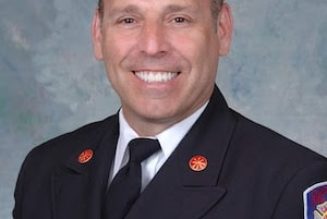
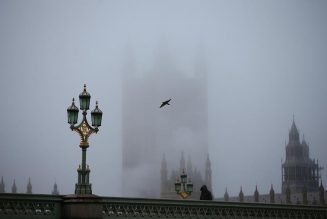
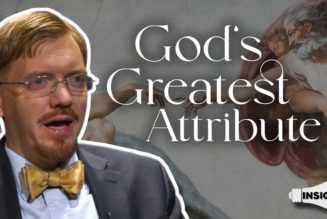
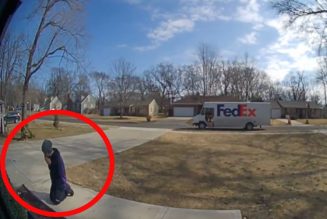

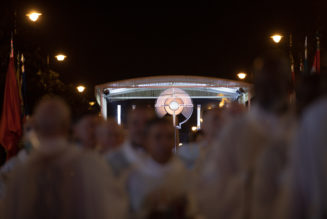
![Is single parenthood the problem? If so, should the government try to fix it? [Note: The Atlantic paywall]…](https://salvationprosperity.net/wp-content/uploads/2023/09/is-single-parenthood-the-problem-if-so-should-the-government-try-to-fix-it-note-the-atlantic-paywall-327x219.jpg)
